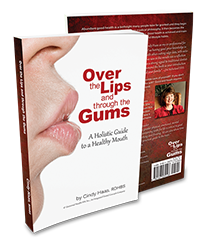Are you Chemically Addicted to Food?
Jonny Bowden PhD made a very interesting point during his segment in the Future of Nutrition Conference that was recently sponsored by the Institute of the Psychology of Eating. In regards to food addictions, he said processed food manufactures have hundreds of PhD scientists who very carefully and methodically layer on the chemicals to make the food light up the brain in the same areas as drugs like cocaine.
My own quest for health started with some food allergy testing, which caused me to completely revamp my eating habits. In an attempt to eliminate just one major food group such as corn, or soy, I discovered how widespread the use was in processed foods. It was very inconvenient at first. Hence the term convenience foods and understanding how easily they became mainstream at a time when women were leaving the home and hearth to follow career paths. In spite of the inconvenience, it inadvertently removed a significant amount of chemicals from my diet, I regained my health, enjoyed feeling good, and got back in touch with cooking my own food. The benefits far outweigh any inconvenience.
After coming clean, I learned a lot about the subtle addictiveness of foods. I feel best when I avoid as many processed foods as possible, opting instead for a diet of mainly fresh fruits and vegetables and whole grains. Coming clean isn’t about will power or lack of it; it is about breaking a chemical addiction. I approach these foods with the knowledge that if I indulge, I am going to pay the price. It is much easier to eat chips in a Mexican restaurant that at home because I know there is an end point to the chips. At home, the end point is the end of the bag and by then the addiction is strong enough for the next bag to find its way into my shopping cart. It takes way more will power than I have to conquer this addiction. If someone has an addiction to cocaine, or alcohol, they would probably not put those addictive substances in their living environment because they understand it is easier to resist the addictive substance when you control the temptation. I just don’t bring the foods into my home.
In the process of coming clean with my food years ago, I was also hit with the realization that I was reactive to so many foods, that if I had eliminated just one of them, I wouldn’t have felt any different. I didn’t start feeling different until I identified and avoided most of the offenders. The same goes with chemical addictions. If you can eliminate eating your favorite processed food for several weeks, while still consuming other chemically laden processed foods, you probably are still feeding the addiction so don’t notice the difference. Try avoiding all processed foods and see if your cravings start pushing some buttons.
While it is uncomfortable to invest the time and effort to avoid processed foods, once you make that adjustment and begin feeling better, it is much easier to avoid the offending foods because: 1. Your enjoyment of the indulgence is short lived, 2. The indulgence requires getting back on the wagon to break the addiction again.
One of the concepts that fuels my efforts to stay clean and healthy in my food selection is my desire not to be manipulated by the food industry. It is no secret that we have health issues in our country. While we listening to the media advertising, which promotes these foods, we are also admonished to exert more will power over our weight gain issues. It is not about will power or the lack of it. It is about the powers that be letting the food industry drug us. As Jonny Bowden pointed out, we don’t realize we are trying to outwit 100 PhD scientists who are layering on the chemicals to light up your brain just like cocaine when we consume these products. When I hear things like this, it makes me even prouder of the fact that I understand this food addiction and am able to at least identify the enemy. I can control this by the choices I make rather than being led by an addiction and then made to feel guilty for my lack of will power.


I should say also believe that melomhesiota is a rare form of cancer malignancy that is typically found in individuals previously familiar with asbestos. Cancerous cells form within the mesothelium, which is a shielding lining which covers the majority of the body’s organs. These cells generally form inside lining in the lungs, tummy, or the sac which actually encircles one’s heart. Thanks for discussing your ideas.